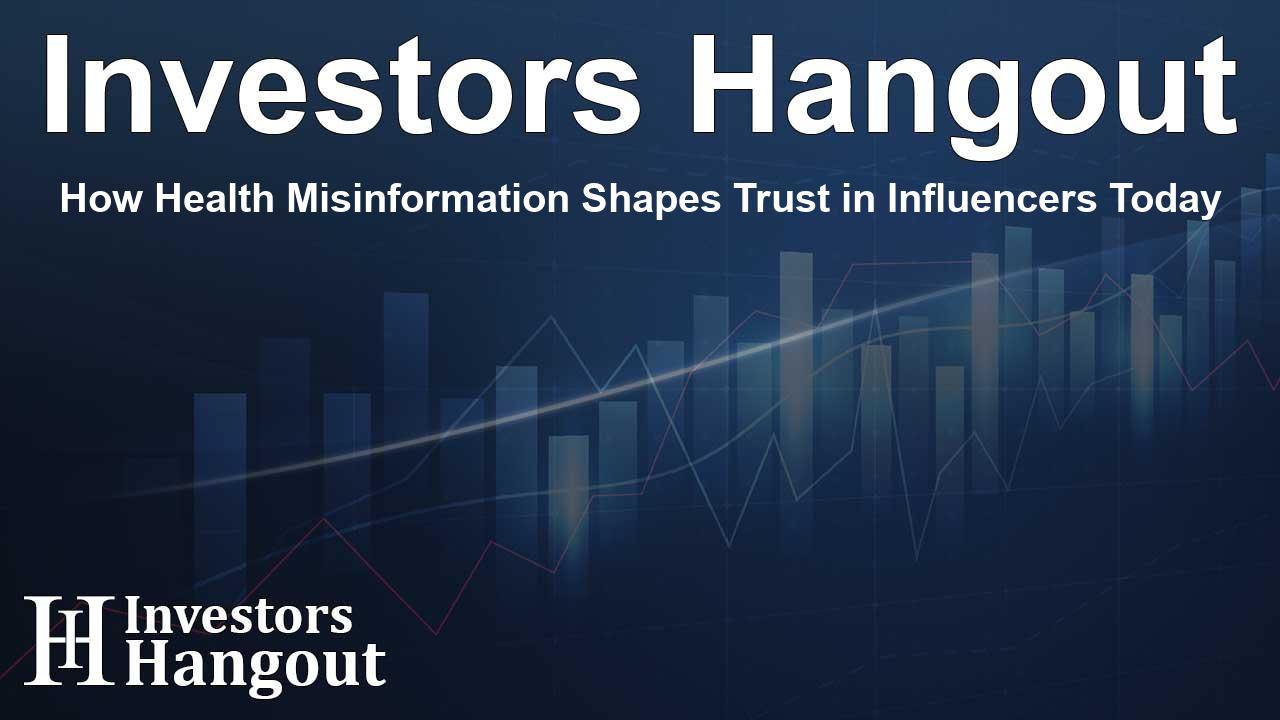How Health Misinformation Shapes Trust in Influencers Today

Understanding Health Misinformation and Trust Dynamics
Jarrard's 2025 Digital Media & Health Information Survey sheds light on the complex landscape where misinformation, influencers, and technology redefine healthcare communication.
A recent survey conducted by Jarrard, a prominent healthcare strategic communications firm, reveals significant public concerns regarding health misinformation and trust in non-medical influencers. This survey, encompassing the views of over 1,000 adults, offers invaluable insights into how individuals seek health information and the factors influencing their trust.
The Paradox of Trust in Misinformation
According to Jed Lam, senior vice president of Market Research & Insights at Jarrard, healthcare leaders are navigating a perplexing situation. Despite widespread worries about misinformation, many consumers still lean on the very platforms that disseminate it. Lam emphasizes that understanding this disconnect is vital for organizations striving to remain relevant in today’s health landscape.
Key Findings from the Survey
The survey highlights several critical trends:
- Misinformation is prevalent, yet habits are static: Approximately 70% of respondents expressed concerns about health misinformation on the internet. However, around 60% continue to rely on social media for health advice.
- Trust in Influencers: Notably, 20% of individuals report trusting non-medical influencers for health information, particularly younger adults who are more susceptible to influencer marketing.
- The Rise of AI: Nearly half of the participants indicated that they occasionally use AI tools when searching for health information, demonstrating a shift towards technology-assisted understanding.
- Wearable Devices on the Rise: A significant 40% of participants utilize wearable health technologies, with half of these users frequently discussing their data with healthcare providers.
Tricia Geraghty, senior vice president at Jarrard, elaborates that the current scenario requires healthcare marketers to acknowledge the dual reality of rampant misinformation and the growing appetite for credible content. She advocates for a strategic pivot towards leveraging high-quality information rather than merely combating false narratives.
The Need for Adaptation in Healthcare Organizations
Given the findings, it becomes increasingly clear that healthcare organizations must evolve their strategies. This evolution centers on recognizing the overwhelming presence of misinformation while seizing the opportunity to showcase trustworthy content tailored to where patients are seeking information.
Engagement and Transparency are Key
The call to action for healthcare providers is straightforward: engage patients where they are and present them with transparent, reliable health information. This approach can not only build trust but also foster a collaborative environment where consumers feel informed and empowered.
Looking Ahead
The urgency for healthcare leaders to adapt is undeniable. As misinformation continues to proliferate, those who prioritize authentic communication and reliable information dissemination will be the ones to thrive. As emphasized, leveraging well-researched insights can help organizations refine their online presence and effectively reach their audiences.
Exploring Insights Further
For deeper insights and strategies tailored to navigating these complex dynamics, healthcare leaders and organizations can access the full findings of the survey. It's an opportunity to reassess methods and responses in the face of changing public perceptions and behaviors regarding health information.
Frequently Asked Questions
What was the primary focus of Jarrard's 2025 survey?
The survey focused on public concerns regarding health misinformation and how trust in non-medical influencers is impacting the healthcare landscape.
How prevalent is the issue of health misinformation based on the survey?
According to the survey, about 70% of respondents are concerned about health misinformation online.
What role do non-medical influencers play in health information?
One in five Americans express trust in non-medical influencers for health-related advice, particularly younger demographics.
How are emerging technologies affecting health information searches?
Nearly half of consumers reported occasionally using AI tools for searching health information, showcasing a shift towards technology in this area.
What should healthcare organizations focus on in response to these findings?
Organizations should focus on creating credible health content and adapting their strategies to engage with patients directly where they seek information.
About The Author
Contact Henry Turner privately here. Or send an email with ATTN: Henry Turner as the subject to contact@investorshangout.com.
About Investors Hangout
Investors Hangout is a leading online stock forum for financial discussion and learning, offering a wide range of free tools and resources. It draws in traders of all levels, who exchange market knowledge, investigate trading tactics, and keep an eye on industry developments in real time. Featuring financial articles, stock message boards, quotes, charts, company profiles, and live news updates. Through cooperative learning and a wealth of informational resources, it helps users from novices creating their first portfolios to experts honing their techniques. Join Investors Hangout today: https://investorshangout.com/
The content of this article is based on factual, publicly available information and does not represent legal, financial, or investment advice. Investors Hangout does not offer financial advice, and the author is not a licensed financial advisor. Consult a qualified advisor before making any financial or investment decisions based on this article. This article should not be considered advice to purchase, sell, or hold any securities or other investments. If any of the material provided here is inaccurate, please contact us for corrections.
